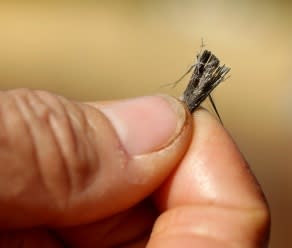New deal for asbestos victims

Groundbreaking reforms to WA laws could soon allow victims of asbestos to claim thousands of dollars more in compensation for their deadly illness.
If the Asbestos Diseases Compensation Bill is passed by State Parliament, for the first time people with asbestos-related diseases would be able to seek provisional damages.
Now, they can seek damages only once and are unable to pursue more compensation if they later develop more serious health problems such as mesothelioma, whereas Victoria, NSW and South Australia allow sufferers to seek interim damages.
The historic legislation would also allow victims to seek damages for loss of capacity to care for a family member, such as a young child, commonly known as Sullivan versus Gordon damages.
In her second reading speech yesterday, Upper House Labor MP Kate Doust said the move was long overdue in WA, which bore the brunt of the asbestos legacy.
She hoped to get strong support from all MPs to give greater justice to asbestos victims.
"This has been a huge problem for people in this State and isn't over by any means because we're still seeing the epidemic," she said.
"Yet there have long been concerns about the limitations of payouts and the absolute struggle families go through to get them."
More than 250 people die in WA each year from asbestos exposure and the State has some of the highest rates of lung cancer, asbestosis and mesothelioma because of the mining of blue asbestos at Wittenoom. Early cases mostly involved miners, manufacturers and construction workers but WA is now in the midst of another wave made up of home renovators and their families who were exposed to asbestos products.
Slater & Gordon asbestos lawyer Tricia Wong said the proposed legislation was very relevant for WA.
"At present, sufferers are left in a real dilemma because if they make a claim when they first become sick, they cut themselves off from a further claim if they later get a more serious condition such as mesothelioma," she said.
The current laws also meant sufferers could not claim for the commercial costs of care they would otherwise have provided to a loved one or family member, which left many families struggling financially.
Asbestos Diseases Society of Australia president Robert Vojakovic said the Bill recognised that asbestos diseases were unique because they could be latent for many years and invariably progressed rather than improved.

